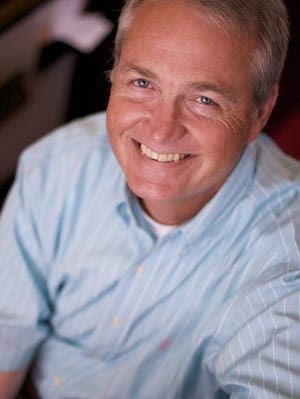For worship planners committed to historic Baptist principles, the Independence Day weekend, like any patriotic weekend, is one of those times when we may feel pulled between participating in the surrounding civic celebrations and staying true to the principles of our Baptist tradition.
Despite the pull, I think it’s not only possible for us to balance the tension between religious and civil liberties, it’s also mandatory that we do.
There is a woeful ignorance of what the Fourth of July holiday actually represents.
According to a number of recent polls, only one out of every four Americans knows that Independence Day commemorates the signing of the Declaration of Independence – marking our country’s break with Great Britain and paving the way for a democracy based on the rights of individuals, among other things, to assemble freely for the purpose of worshipping as they please.
I haven’t seen any studies, but I would hazard a guess that even fewer Baptists understand the prominent role early Baptists – such as Roger Williams, Obadiah Holmes and John Leland – played in securing this particular right.
Perhaps the reluctance many pastors and planners feel around this time of the year is due to the tendency of some churches to offer over-the-top patriotic worship experiences that rival community festivities with their bands, balloons and, in some cases, even fireworks.
I’ve seen several of these “worship” experiences, and even though they are touted as “God and Country” services, they seem to be more about the latter than the former.
I believe it’s possible to construct services around patriotic holidays that are both theologically sound and civically celebratory. While requiring much thought and prayer, worship that renders to God and Caesar what each is due is possible when the worship planning team takes into consideration the following guidelines:
- Use such Sundays to focus the congregation on one of the most precious freedoms of all – the freedom to worship as we please.
Rest assured there are Christians around the world who would love nothing more than to gather openly with fellow believers in worship but can’t for fear of retribution.
We shouldn’t take such a liberty lightly, especially when our own Baptist history in colonial America is replete with stories of folk who suffered greatly to secure this cherished right.
- Consider how an Independence Day Sunday might allow for a prophetic emphasis on using our secular freedoms to promote “liberty and justice for all.”
For example, this is one Sunday when I allow for the Pledge of Allegiance to be said openly and proudly in worship, along with pledges of allegiance to the Christian Flag and the Bible.
But while congregants might be able to “connect the dots” between those three pledges on their own, it doesn’t hurt to reinforce the connections with appropriate hymns, prayers, readings and sermons that challenge us to give more than lip service to what really is more the “Prophetic Dream” than merely the “American” one.
- Don’t shy away from acknowledging the civic importance of the Fourth of July, but also take the opportunity it provides to pray God’s grace upon our republic.
I remember a bumper sticker I once saw on one of our member’s car: “God Grace America.”
We hear a lot about God “blessing” America. While there’s nothing wrong with praying for God’s blessing on our land, it seems equally important that Christians acknowledge our country’s need to grow with God’s help in rising above the illusion of perfection that has afflicted so many institutions and governments throughout history.
After all, this country is still a “grand experiment” in many ways, and one of faith’s greatest contributions may be to call our fellow citizens to continual contrition. “America the Beautiful” and “My Country, ‘Tis of Thee” are two hymns that give strong voice to such a call and confession.
The preaching teacher Fred Craddock reminds us, “A lot of stuff that passes for ‘freedom’ is really just panic and fear.” If you have a birdfeeder in the back of your house, you know this to be true.
Birds peck and look, fearful of what some other bird might swoop down to take from them, or, even worse, what cat might come calling for its dinner. Some people say, “Be free as a bird.” But those birds would trade their “freedom” for real freedom in a heartbeat.
Don’t let your people trade theirs for some cheap imitation and know that in the process you won’t have to compromise yours.
Instead, use the season to remind all of what Jesus said: “If the Son sets you free, you will be free indeed” (John 8:36).
Doug Dortch is the senior minister of Mountain Brook Baptist Church in Birmingham, Ala.

